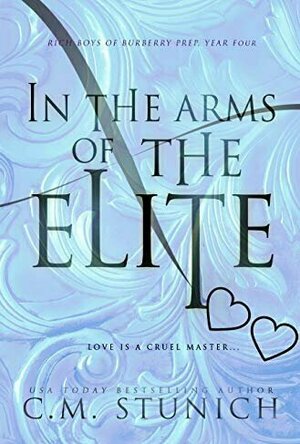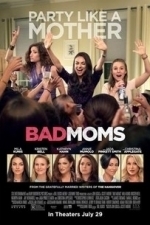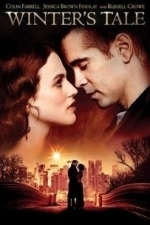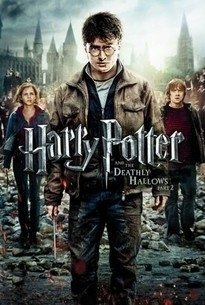Leanne Crabtree (480 KP) rated In the Arms of the Elite (Rich Boys of Burberry Prep, #4) in Books
Jan 9, 2020
Marnye is entering her final year of Burberry Prep. She wants to graduate the top of her class and head off to her dream university, Bornstead. If the five boys she's torn between follow her there then that's a bonus for her. Her mission is to bring down the remaining Bluebloods and to stop bullying at the school and the Infinity Clubs influence. Nothing is ever easy, though. I'm also not going to go into any more detail as it will totally spoil the story for you.
I'll hold my hand up and say that the two Z's - Zach and Zayd have always been my favourites but we see a softer side to all of them in this and I truly - FINALLY! - believe that the boys care for her. Even Tristan, who's cold and stiff most of the time, had a really nice scene in this with Marnye and I actually softened a lot towards him. Creed is still the "look bored while totally caring" one but he did have a few cute scenes with Maryne, too. And then finally Windsor, the Prince. I'd liked him all along but I never quite understood his fascination with Marnye when he finally arrived at the school so he was never going to be top of my list. Above is probably my preferred order of the boys, which is a little strange BUT at the end of the book there's an Author's Note where she mentions being interested in doing an older series following this group as they head off to University as there little group of six and I have to say I am interested in that!
So, yeah. The series has grown on me a lot since that first one where when I started the second book it was all about Marnye getting her revenge on the Idols for the crap they'd pulled.
My rating is only a 3.5 for this as I do feel a bit like the ending wasn't entirely finished, though Harper du Pont did get what she deserved.
This is a little messed up initially but if you like bully romances and reverse harem books then you should totally give this a go and stick it out after the slightly cringe-worthy sex scenes and evil plots.
Gareth von Kallenbach (980 KP) rated Bad Moms (2016) in Movies
Aug 6, 2019 (Updated Aug 6, 2019)
Amy Mitchell (Mila Kunis) is a 32-year-old modern mom, who has a seemingly perfect life: a great marriage, over-achieving kids, a beautiful home and a career. However, she is over-worked and so exhausted that she’s reached the point where she is about to snap. Her life has been reduced to spending a lot of time driving her kids to their extracurricular activities and trying to be just in time for everything. Her perfect life is just a smoke screen, her husband Mike (David Walton) has been unemployed for a while, doesn’t care about helping with anything house- or kids-related, and enjoys a little bit too much online entertainment. In addition to being spoiled, her daughter Jane (Oona Laurence) has some anxiety issues and her son Dylan (Emjay Anthony) has never done his own homework. To make it even more interesting, Amy has to deal with the judgement of PTA Queen, Bee Gwendolyn, (Christina Applegate) and her minions Stacy (Jada Pinkett Smith) and Vicky (Annie Mumolo).
After one hectic day, all Amy can do is stop at a bar and grab a glass of whiskey. There she meets two other underappreciated moms, Kiki (Kristen Bell) and Carla (Kathryn Hahn). Over drinks they vent and declare that they’re tired of living up to expectations and not being appreciated for all their hard work. So they decide to be bad moms.
I love seeing Christina Applegate as the villain; she is smart, evil and pulls all the strings, driving everyone to the edge but nobody can say anything because they’re terrified of her. But the one that dominates the comedy is Kathryn Hann. You would think you might be tired of seeing her in just about every movie released in the last 10 years, but oh boy is this woman hilarious! She plays the divorced working mother whose every line, good or bad, makes the audience ask again and again “Did she just say that?”
I really enjoyed this movie. It is the perfect summer comedy that all audiences can enjoy, especially moms who can really relate. This is The Hangover for moms. I assure you will laugh nonstop because it has a wild drunk trip to the grocery store, a memorable show-and-tell demonstration and a really funny lecture about unflattering bras. I promise you will leave the theater with a smile.
Gareth von Kallenbach (980 KP) rated How to Train Your Dragon 2 (2014) in Movies
Aug 6, 2019
Writer/director Dean DeBlois helms the reins on this one; he has opened up the story without losing the tone of the original. The true delight is in the details, the visual effects are stunning; a prime example of how much computer generated animation has progressed in such a short amount of time. From the diverse landscapes to the design of the characters were absolutely breathtaking. Even the most minute details, such as the texture from the armor, to the scales on the dragons, even the battles scars on the soldiers are so vividly expressed, they assisted in creating the most dramatic and heartfelt moments.
The overall theme has matured from the first film with a continually surprising plot. In the first go around, Hiccup learned to be himself; in this installment Hiccup is taught to become a better version of himself when those unbreakable bonds are tested, and the line between good vs. evil is skewed.
I wouldn’t say there is much training in the sequel, however there is still a wonderful message of friendship, love, and loyalty. Some of the material may be a little too dark, and there were moments that spent way too much time developing the characters which can be pretty taxing for young children.
A worthy follow up….
Gareth von Kallenbach (980 KP) rated Winter's Tale (2014) in Movies
Aug 6, 2019
After a brief scene set in 1895, where we see a set of parents put their baby in a model ship, lower him down into the Hudson River and set him afloat, the timeline jumps to 1916. In this timeline we meet Peter Lake and Pearly Soames for the first time, and are drawn into their story of good versus evil. As Pearly hunts for Peter, in order to destroy him, Peter is assisted by a beautiful white horse named Athansor. The horse is absolutely stunning and along with the incredible use of light throughout the movie, it is possibly one of the most memorable things about the film. The stallion is the guardian angel of the adult Peter – and he flies! The CGI was seamless and beautiful.
As Peter tries again and again to escape Pearly, he ends up meeting Beverly who is ill with consumption. Of course, it’s a love story and they fall in love. Farrell and Penn’s portrayal of their characters’ romance was so poignant, you will need to have tissues on hand. Throughout the movie a voiceover says “inside each of us is a miracle, a miracle intended for one person alone.” The plot twists connected to that statement were just enough to keep me guessing – often incorrectly.
It was a total and complete shock to see Will Smith play an antagonist so well. Russell Crowe was great as Pearly, very believable as a demon obsessed with getting his way and wreaking vengeance on someone who he saw as having “done him wrong.”
When the storyline jumped to present day New York, 2014, the imagery of the lights and stars helped with the transition but the magic of the film seemed to disappear afterwards. While the last third of the movie was not hard to follow, it was still a bit hard to understand its point right away. I definitely felt like the movie lost some momentum after the jump to present day. In the end, it just felt like there was something missing – possibly left in the editing room. Maybe we’ll find it on the DVD extras.
I would give this movie 3.5 out of 5 stars.
Gareth von Kallenbach (980 KP) rated Harry Potter and the Deathly Hallows - Part 2 (2011) in Movies
Aug 7, 2019
Opening exactly where Part 1 left off, we find Harry, Hermione and Ron continuing on their quest to locate the remaining Horcruxes, objects in which Harry’s nemesis, Lord Voldemort (Ralph Fiennes) has implanted a part of his soul. Destruction of these Horcruxes help weaken Voldemort. Polyjuice, goblins and a dragon ride provide some humor and thrills and eventually leads to the trios’ return to Hogwarts, where Alan Rickman’s Severus Snape is now the hated headmaster. Voldemort has attained the powerful Elder Wand and has turned his evil sights on the school in hopes of drawing Harry out. Along with his questionably loyal Deatheaters, they surround Hogwarts and prepare to attack.
At times the storytelling is a bit slow, at times too abrupt. While the special Harry Potter 3D glasses were amusing, I didn’t notice any spectacular effects that would warrant the extra charge to watch this movie in 3D. As is the case for converted 3D movies, the effects are more of a distracting afterthought than a real enhancement. For those not familiar with the books, the storylines may be a bit convoluted but your patience will be rewarded. Daniel Radcliffe’s matured Harry Potter is grim and resolute, his best friends Hermione and Ron (Emma Watson and Rupert Grinch) are aptly desperate but determined. Taking a stand with them, wile making their cinematic curtain call, are many of their Hogwarts professors, their classmates in Dumbldore’s Army and their mentors in the Order of the Phoenix. There are more heartwrenching moments than heartwarming parts as Harry learns more about the events surrounding his existence and what he must do to defeat Voldemort.
Few books, and far fewer movie adaptations, have captured the hearts of such a loyal and enthusiastic fanbase. The valiant attempts by directors Chris Columbus, Alfonso Cuaron, Mike Newell and, lastly, David Yates, to recreate the vast, enchanting wizarding world imagined by J.K. Rowling, have deservedly garnered the franchise a loyal and enthusiastic fanbase. Yet, as lush and vivid as the movies have been, they only touched on some of the best parts of the books. Needless to say, I wasn’t expecting perfection. But what I saw in Part 2 was pretty darn close. While movie adaptations of beloved stories will always leave serious fans wanting more, Deathly Hallows Part 2 is a fitting finale to this epic tale.

The Revenge of Shinobi Classic
Games, Entertainment and Stickers
App
Reap revenge in SEGA’s legendary side-scrolling beat ‘em up, now available on mobile for the...
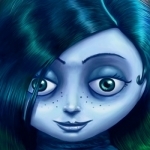
Amelia - Story Book for Kids
Book and Games
App
One of the most interactive story books for iPad, iPhone and iPod touch. Discover unique adventure...
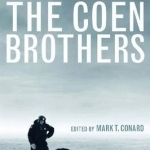
The Philosophy of the Coen Brothers
Book
In 2008 No Country for Old Men won the Academy Award for Best Picture, adding to the reputation of...
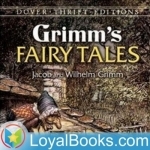
Grimms' Fairy Tales by Jacob & Wilhelm Grimm
Podcast
Talking animals, wicked stepmothers, valiant tailors, cruel witches! Sixty-two stories that feature...

Paradise Lost by John Milton
Podcast
Magnificent in its scale and scope, this monumental poem by the blind poet John Milton was the first...
